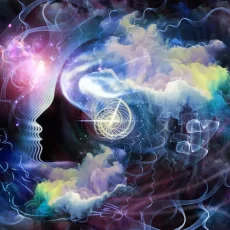In my last article on meditation, I told you about the importance of meditation, and why it is important to practice meditation. I hope you have understood the importance of meditation.
So, what is meditation?
Meditation is the tongue of the soul and the language of our spirit. Meditation is to dive within, beyond thought, to the source of thought and pure consciousness.

It is important to know what Gautam Buddha thought and expressed about the importance of meditation.
He said, “He who is mentally concentrated, sees things according to reality.”
Meditation rids the mind of the defilement of delusion, or ignorance; reducing bias, envy, and other factors that cloud our mind and judgment.
How did Gandhi ji express about meditation?
At the start of one especially busy day, Gandhi said, “I have so much to accomplish today that I must meditate for two hours instead of one.”
In today’s stressful times when we are struggling on so many fronts to put our lives’ pieces together, it is a challenge to remain calm and composed. Anxiety and depression rule the roost. Every moment adds to anxiety; hence it becomes difficult to maintain inner calm.

In such a scenario, do we make “Meditation” a way of life? Now, you will ask me: Is meditation a way of life? Is it lives’ that important component?
So, to answer that: Meditation as a way of life is clear, uncomplicated, inspiring, and straight from the heart of a true expert who has been there. The benefits of meditation are now known to be deeper than most people imagine. You should not deny yourself these advantages toward a happier, healthier, and more fulfilling life.
In the Bhagwat Gita, Arjuna expressed the importance of meditation more explicitly when he commented: Mind is difficult to control because it is subtle and powerful like the wind. Krishna agrees that it is so. However, He says that first a person should go through the preparatory steps of Karma Yoga and lead a meditation-conducive lifestyle of moderation, forgiveness, detachment, etc. Krishna calls this vairaagya (detachment). When such a person follows the process of meditation described, he will be able to succeed with ease. Krishna calls this abhyaasa (practice). By following these two disciplines of detachment and practice, a person can succeed in meditation.

University of Wisconsin neuroscientist Richard Davidson has conducted experiments on the effects of meditation on the brain. His results suggest that meditation may lead to changes in the physical structure of the brain regions associated with attention, fear, anger, compassion, anxiety, and depression.
According to Jason Marsh of the Greater Good Science Centre, brain imaging studies reveal that a half-hour of daily mindfulness meditation can increase the density of grey matter in the parts of the brain associated with memory and empathy.
According to researchers, meditation has many beneficial physical effects, including potential improvements in:
- Blood pressure
- Metabolism
- Immune response
- Sleep
- Longevity
- Alleviation of pain (including chronic pain)
Researchers also point to many mental and emotional benefits.
For example, meditation, when done well over time, can:
- Improve brain activity and cognitive function (including mitigation of cognitive decline)
- Enhance attention, focus, and concentration
- Improve our mood and increase positive emotions that help provide resilience against negative emotions
- Help us cultivate self-awareness
- Promote empathy and compassion
- Decrease our anxiety and emotional reactivity
- Help us manage and reduce worrying and rumination
- Help improve performance on specific tasks (e.g., ones that require attention and accuracy)
- Help us manage our cravings (e.g. if we struggle with alcohol or overeating)
- Help us overcome burnout
- Help reduce symptoms of depression
Meditation also might help if you have a medical condition. This is most often true if you have a condition that stress makes worse.
A lot of research shows that meditation is good for health. However, some experts believe there’s not enough research to prove that meditation helps.

With that in mind, some research suggests that meditation may help people manage symptoms of conditions such as:
- Anxiety
- Asthma
- Cancer
- Chronic pain
- Depression
- Heart disease
- High blood pressure
- Irritable bowel syndrome
- Sleep problems
- Tension headaches
With its immense benefits, it is important to practice meditation for a peaceful life in this chaotic world.
If you are unable to practice yourself, you can go for an expert who will help you with effective meditation techniques.
Please feel free to contact Ms Monika Shankar from HappyHO. Mobile: 9953943223



